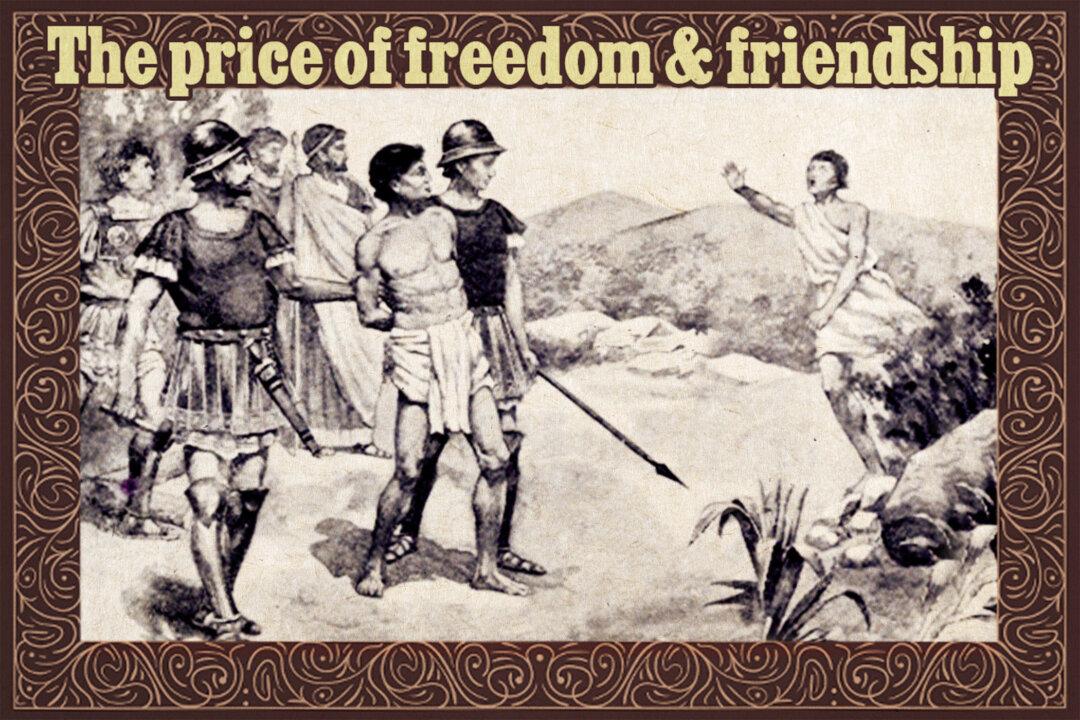What is true friendship? How far can meaningful friendships go? Is the culture of genuine brotherly bonds truly lost? What can we do to create relations that truly matter and are founded on selflessness and altruism? The following Greek legend reminds us of some of these nearly lost virtues that are essential to any and all relationships, including friendship. Do share with us in the comments section the values you hope to live by in your day-to-day lives after reading this tale.
More than two thousand years ago, the Roman orator Marcus Tullius Cicero told the story of two friends who had a bond as strong as any brotherhood.
Damon and Pythias lived in Sicily, an island right off the coast of Italy, and their city-state, Syracuse, had fallen on bad times, being ruled by a tyrant by the name of Dionysius. As Damon and Pythias were just and true in their cause to each other, they were also just and true in the cause of liberty and freedom.
United in their cause, they both set out to stir the hearts of the people toward what was right in different parts of their beloved city.
“No king should have absolute power over the people,” Pythias preached in the city streets. “The people should have more say in who governs us and how we are governed!”
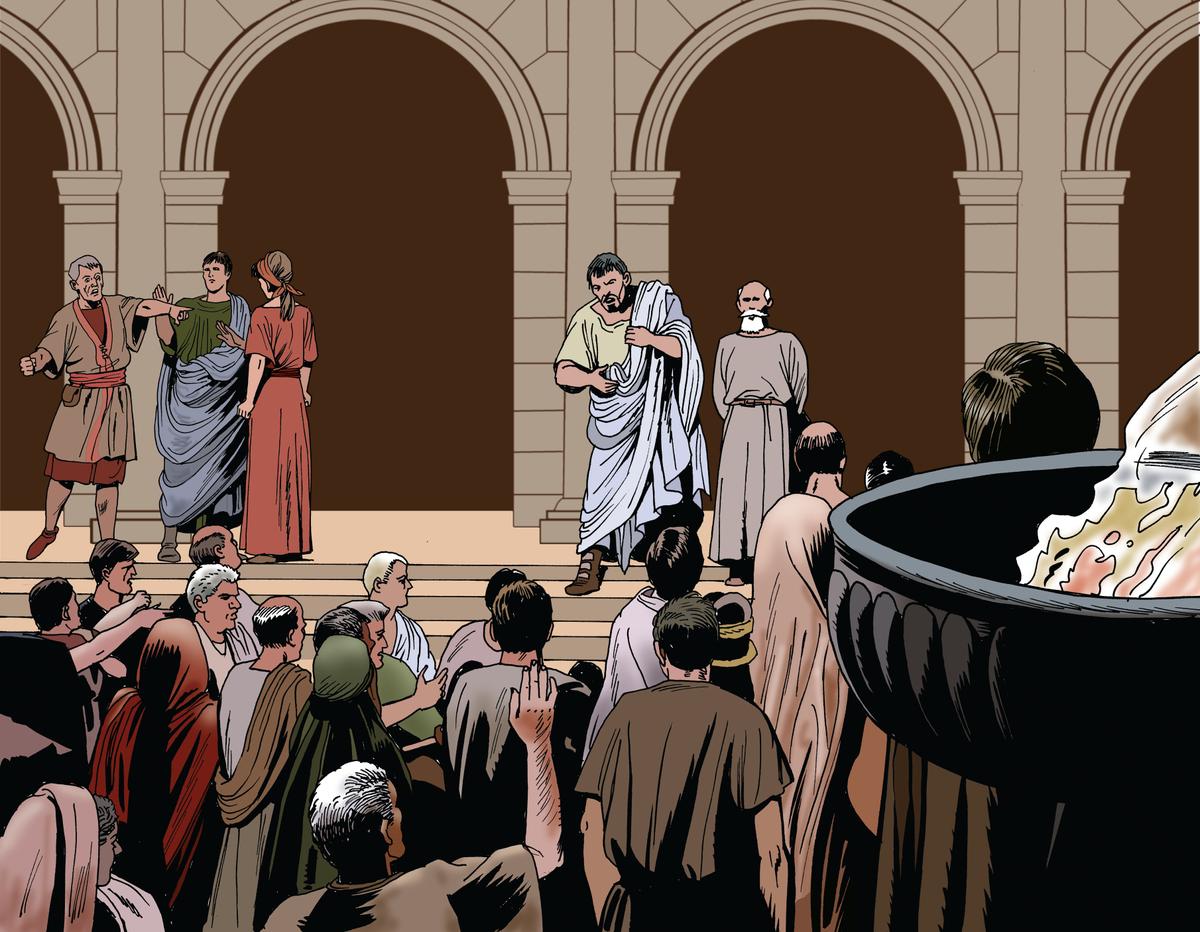
The people murmured in agreement, and the whispered mumblings made their way up to the tyrant king, Dionysius. “Find me the one responsible for this disturbance,” Dionysius yelled to the captain of his guard.
It did not take long for the captain to find out who was responsible as he found Pythias still preaching the same sentiments in the streets.
“Are you the one responsible for spreading these lies against the king?” asked the captain, his hard eyes set against Pythias.
“I only speak the truth against tyranny,” Pythias said.
“We shall see how your truth fares against the king!” the captain shouted and ordered his men to seize the rebel.
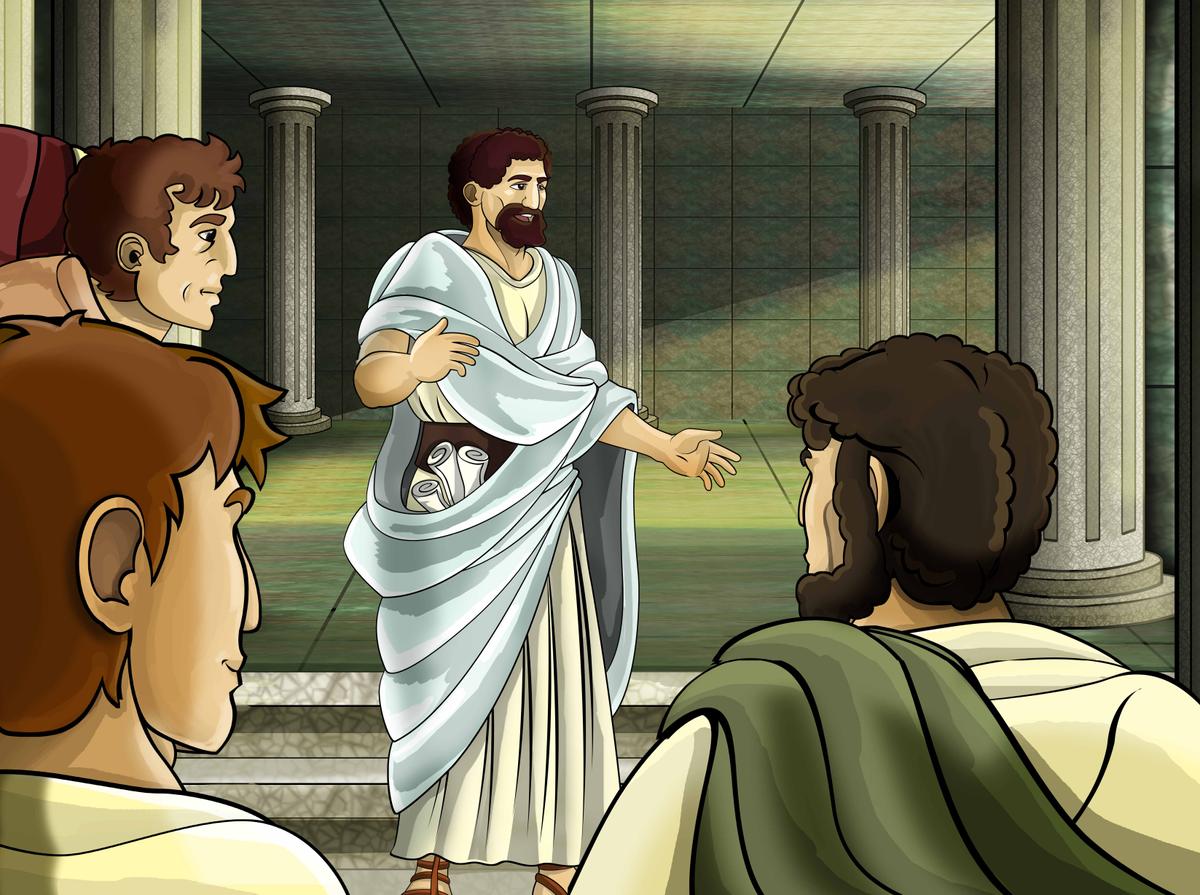
They roughly handled him and brought him before the king, and Damon, who had become aware of his friend’s dangerous plight, secretly followed behind.
The king, though shaking with rage when Pythias was brought to him, quietly said, “Your insolence has cost you your life unless you go and tell the people that you take back what you said.”
“I cannot tell a lie,” Pythias said. “You tax the people greatly, and we have no say in how you rule our once great city-state.”
Dionysius was unable to control his anger at this point. “Then your life is forfeit!” he yelled, standing up and looking down on poor Pythias.
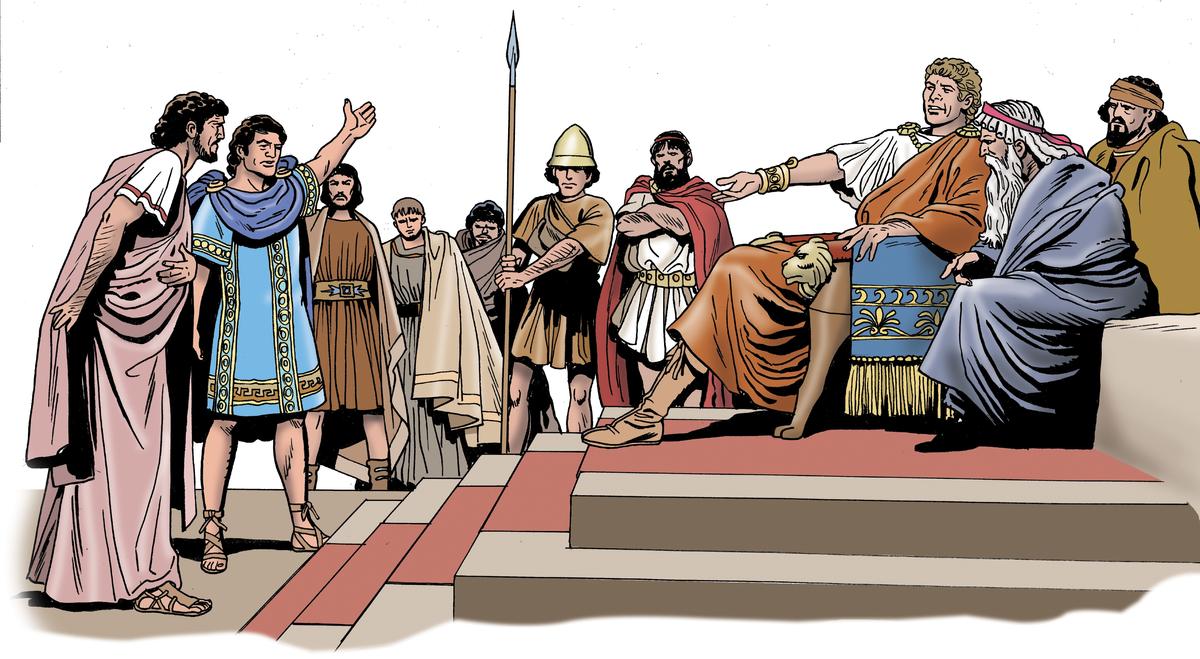
“I will gladly give my life for a cause that is just,” said Pythias. “But please let me go and say farewell to my family.”
The tyrant king did not understand a thing such as honor and did not believe for one second that Pythias would ever return if he let him return to his family. “Do you think I’m such a fool that I would allow you to return to your family?” the King spat out. “You would escape and never return!”
At this moment, a voice shot out from behind the captain and his guards. “I will take the place of Pythias while he says farewell to his loved ones,” Damon said, walking toward his friend.
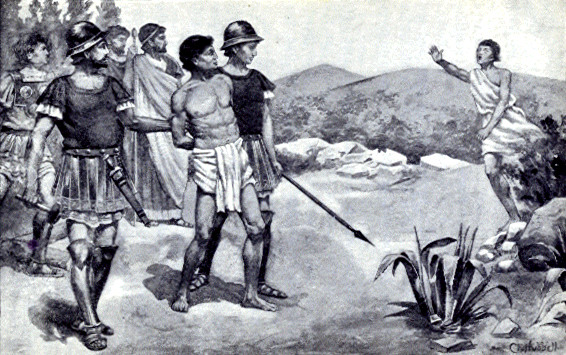
“This is an interesting proposition,” the king thought to himself. “This will surely give the people a reason to believe I am fair if I allow this thing, though this man is a fool. This Pythias will never be seen or heard from again.”
“Alright,” he said aloud. “You may take the place of your friend, Pythias, however, if he does not return by three days’ time, you will pay the price of his insolence with your own life.”
Damon approached his friend, and they clasped arms. “Go and see your family, my dear friend,” Damon said.
“I will never be able to repay you,” Pythias answered.
Damon grabbed his friend by the shoulders and gently shook him. “Your friendship to me has paid the price ten times over. Now go!”
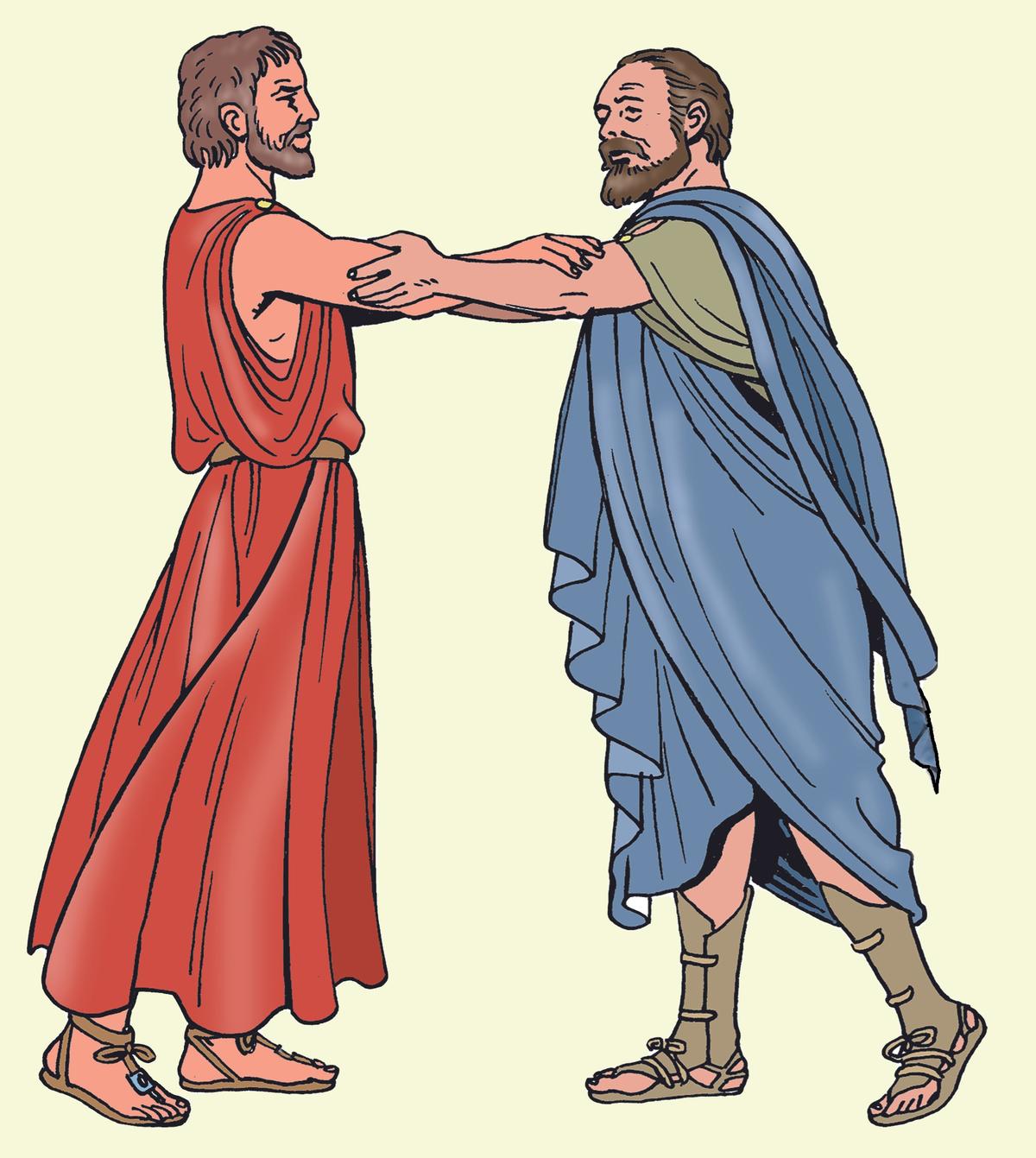
As Pythias left, Dionysius hollered out in dark laughter. “Your friend will never return now, you fool,” the king said. “Now you must wait in the prison, where in three days time you will be executed!”
“My friend will return,” Damon said, looking the king squarely in the eyes.
Then the king had the guards take him to his prison cell. Each day the king came and antagonized Damon about his friend abandoning him. On the third day, the king approached the cell. “At sunset, you will be executed. You are a fool. You could have been a free man, but you chose to believe this friend of yours.”
“I know Pythias will do everything possible to make it back here to free me,” said Damon.
“We shall see,” said the king, stroking his beard thoughtfully.
Damon watched the sun trek across the sky serenely. He knew his friend must have met trouble, and he still believed Pythias would return if it were within his power. Just as the sun was about to set west of the Mediterranean Sea, a shout was heard outside the prison.
“Damon,” Pythias shouted. “Where are you? I have returned!”
Upon hearing this, the king and his men let Damon go and brought him and Pythias to the courtyard.
Damon and Pythias embraced one another and Damon noted that Pythias was wounded and bruised in more than a few places.
“What has become of you, my friend?” Damon asked.
“I would have been here much earlier, Damon,” Pythias said. “At first, I was held back by fierce winds that would not let my boat return. Then once the winds were favorable, it was not long before my ship was overrun by a band of pirates who took my boat and belongings, throwing me out into the waters.”
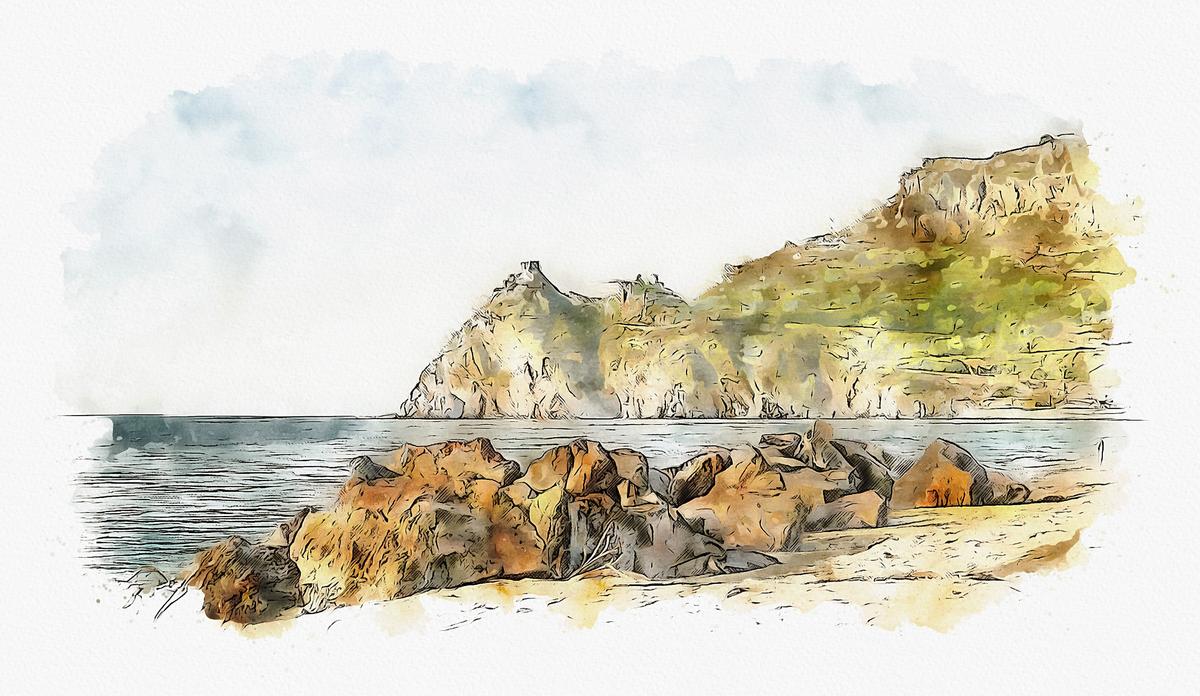
Pythias then looked to the king, who stood by watching quietly. “I am ready now,” Pythias said.
For a long time, Dionysius stood still without saying a word, and both Damon and Pythias believed they saw a tear sidle down his cheek.
“I will let both of you go on one condition,” the king finally said.
“Name your demand, and we will determine if it is just or not,” Pythias said.
“I will let both of you go,” the king said, “if you teach me to be worthy of this type of friendship.”
For the rest of Dionysius’s life, the city-state of Syracuse was ruled wisely and well, and Damon and Pythias have been a banner and example for friendship ever since.

